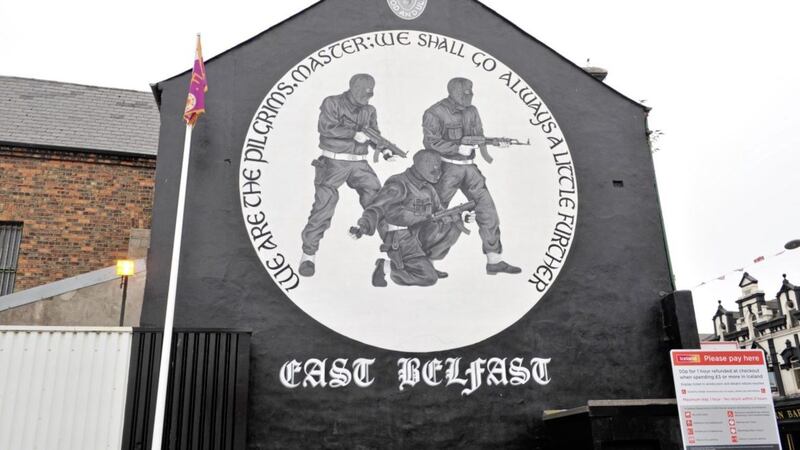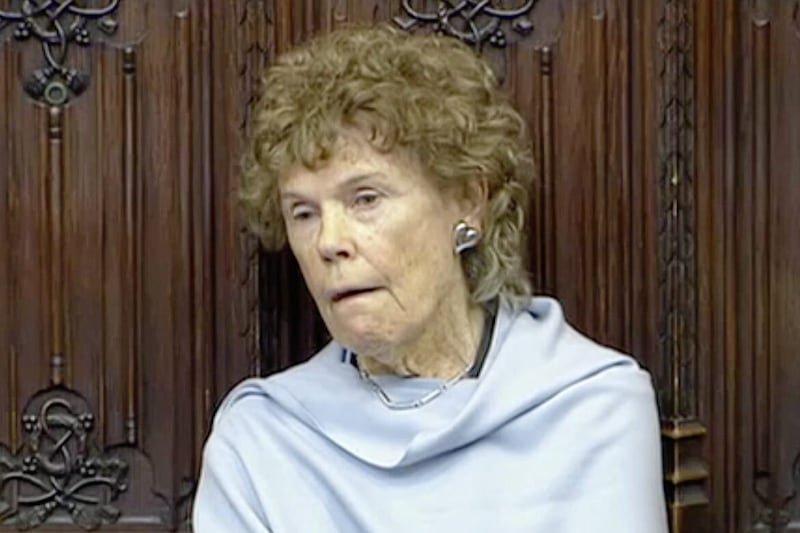THERE was a generous dose of Trumpian irony in Kate Hoey’s recent claims about the pervasiveness of an “elite nationalist network”.
It’s unclear whether the fox hunting-supporting, grammar schools advocate penned the remarks from the comfort of the House of Lords’ benches, from her metropolitan residence, or from her holiday home.
Her musings were at best crude sociology, weaponised by a section of unionism that is adopting increasingly desperate arguments as its irrelevance to society – if not yet the DUP – wanes. The comments did nonetheless cause great offence to many well-to-do nationalists, who rather smugly listed their qualifications on social media while simultaneously demonstrating they weren't smart enough to realise they were being baited. The former Labour MP’s qualification of what she said, carried in this newspaper, did little to quell the allegations of sectarianism and cultural warfare.
On one level, however, she is correct to say that over the course of a couple of generations nationalists – and republicans – have looked beyond the traditional career paths which once led many to become solicitors, publicans or bookmakers. In a bygone era, these occupations offered the possibility of prosperity to those who were generally excluded from land ownership, academia, the security forces and much of the regional polity. They were arguably the best options for those who didn’t emigrate or join the priesthood.
Fair employment legislation, the continued outworking of the 1944 Butler Act and economic shifts led to a belated growth of the Catholic middle class, which in many ways has become more Protestant in its theology as its prosperity increased. A corresponding level of influence for this socially mobile nationalist bourgeoisie in northern society is therefore entirely natural, as is the desire to shape that society to reflect its ideology.
However, it is worth stressing that it is still the region’s nationalist areas that overwhelmingly continue to endure the highest levels of deprivation.
Baroness Hoey couched her comments amidst a call for greater representation of working class unionists in the sections of society where she believes nationalists have excelled. It’s a sentiment few can argue with but she is fundamentally wrong to deliberately cast any attainment as a binary, zero sum game in which one side’s gain has been another’s loss. A rising tide will lift all boats. She also fails to recognise that unionism itself is largely responsible for the consistent under-achievement of working class Protestants, or that demographic commonly referred to a ‘loyalists’. Again she projects the failure of her constitutional allies to help the working class on to those who faced the same obstacles and more.
The distinction between nationalist and republican is for the most part political, tending to signal a divergence in the methods employed to achieve a united Ireland. It does not carry the same classist connotations as the labels ‘loyalist’ and ‘unionist’, terms that were in common usage long before nationalists developed their “network of influence”.
The term loyalist may historically have been used to refer to a particular brand of unionist who felt greater affiliation to the crown than the state but its meaning has morphed over recent decades to become synonymous with the largely urban, working class and paramilitarism – even the loyal orders now tend to shun it. Think about this, while it would be very possible for a republican to become a high achiever, securing a senior, well-paid role in the media, academia or law, a ‘loyalist’ doing similar seems unusual. It is almost assumed that once a loyalist becomes middle class the term no longer applies. Perhaps this says a lot about the limitations of loyalism as a label – and an ideology? – but it’s hard to refute the strong class divide within unionism. It was ‘big house’ unionism, personified by the likes of Basil Brooke, which created and nurtured this distinction, using it to reinforce a social order based on heredity entitlement rather than meritocracy.
Creating nationalist scapegoats to explain inequality is not only misguided revisionism, it will perpetuate divisions on every level.









